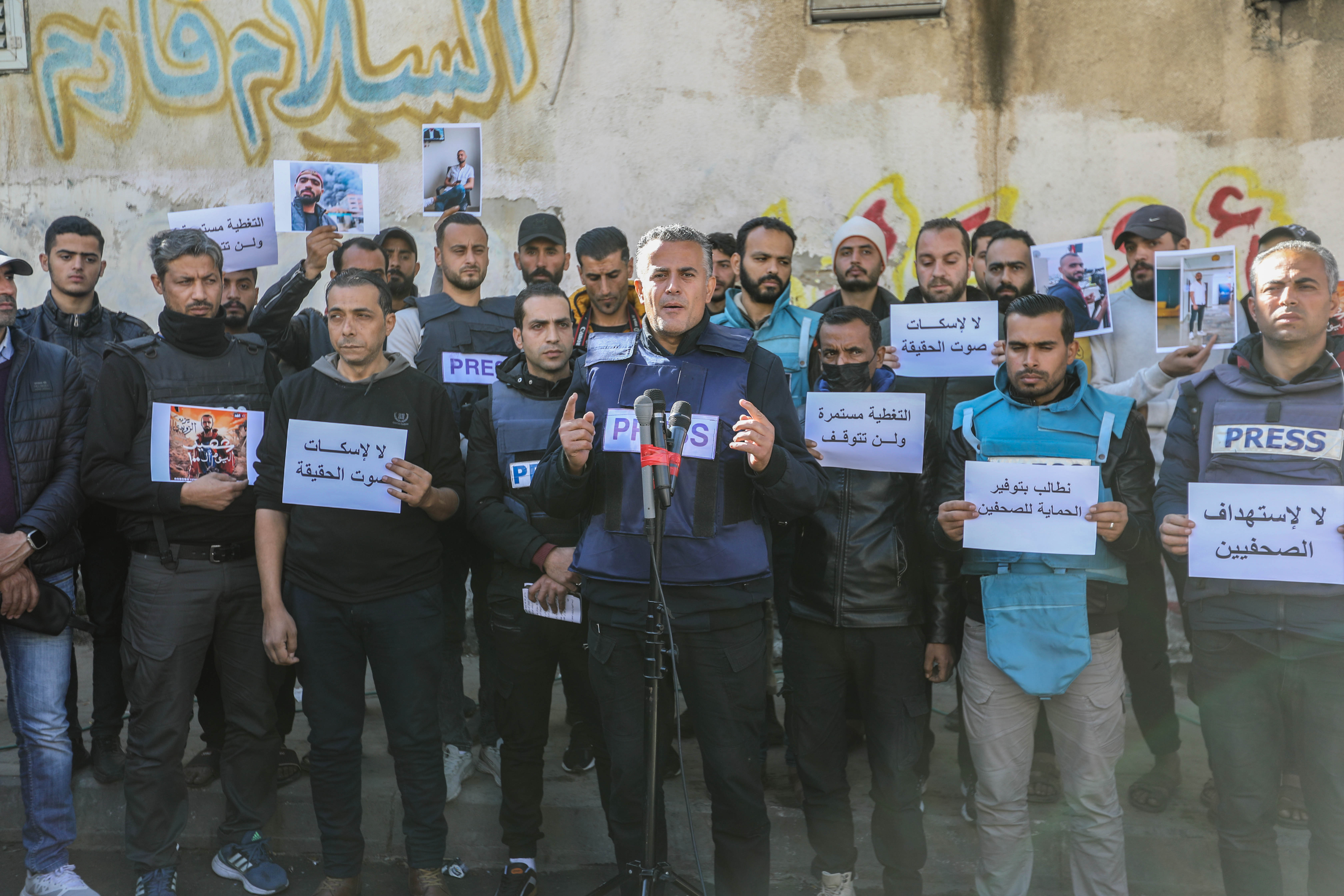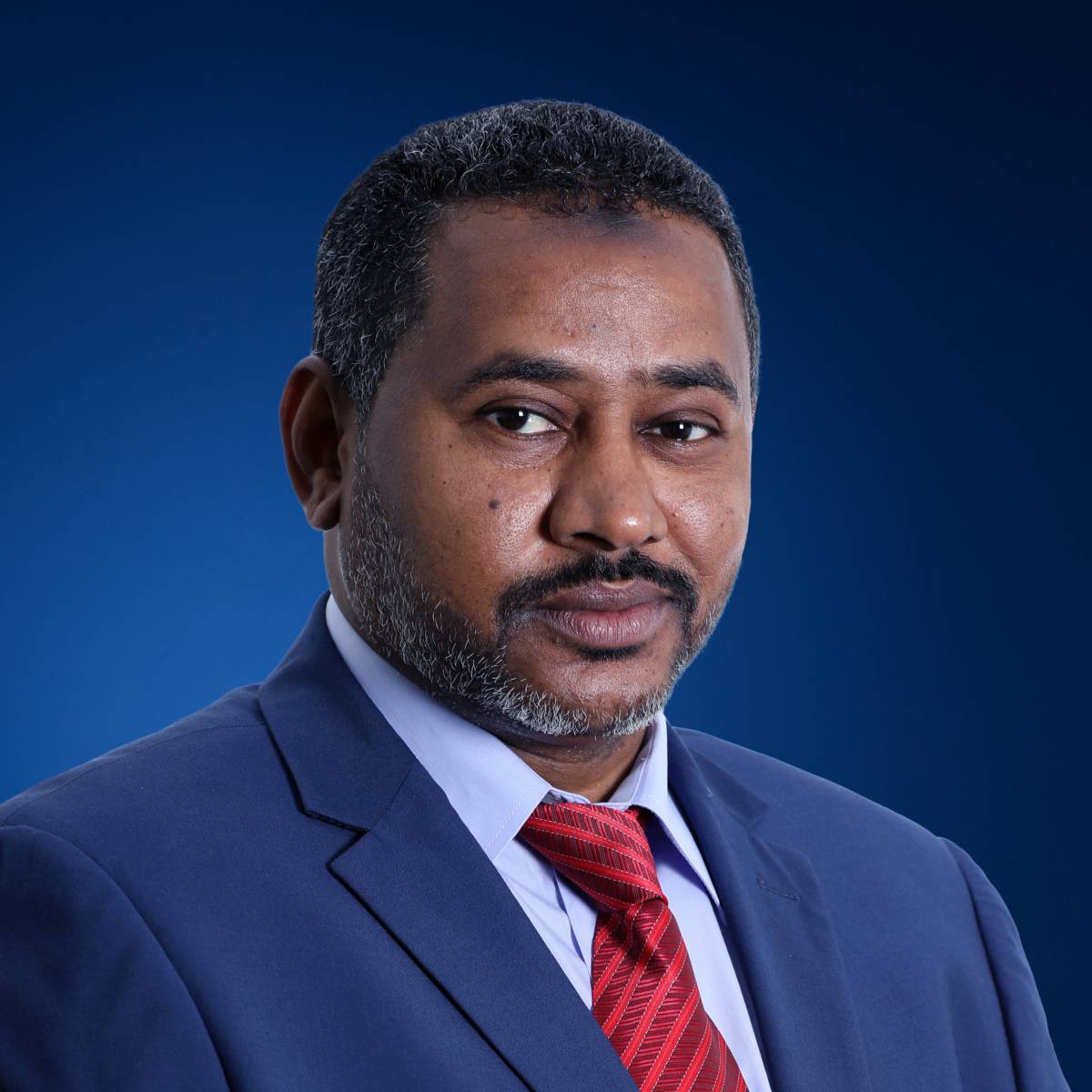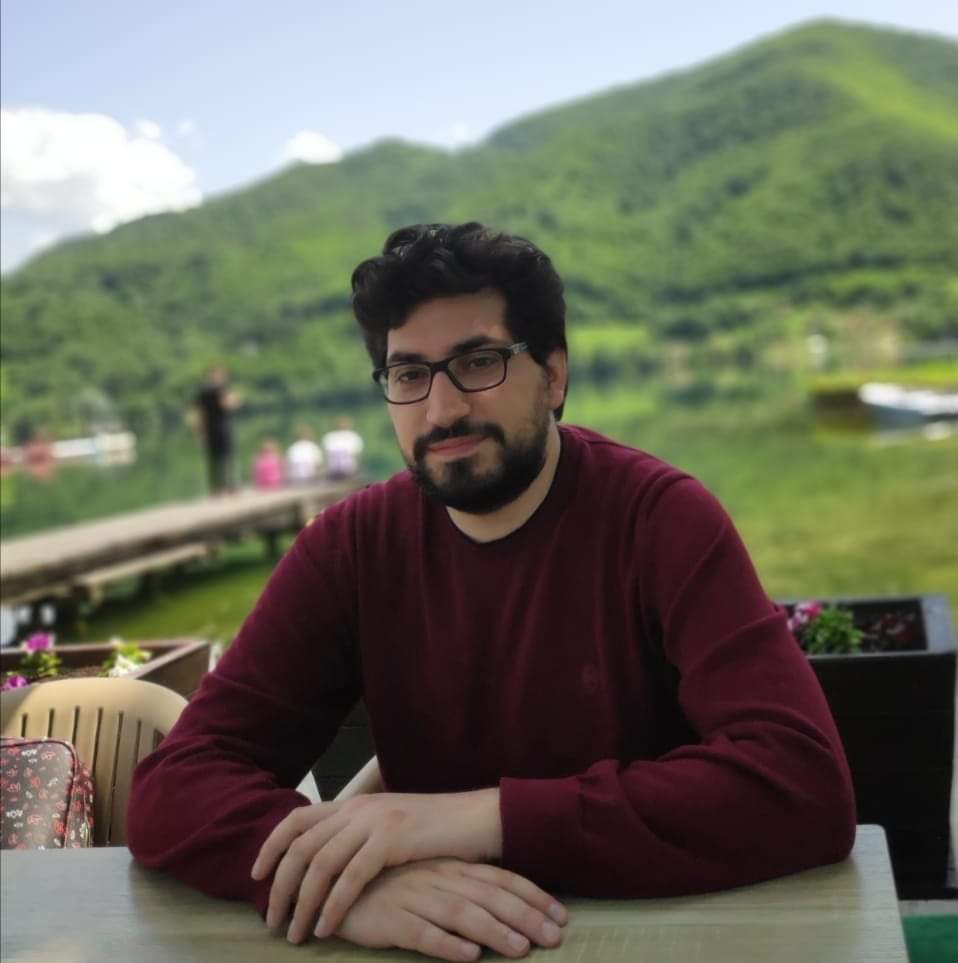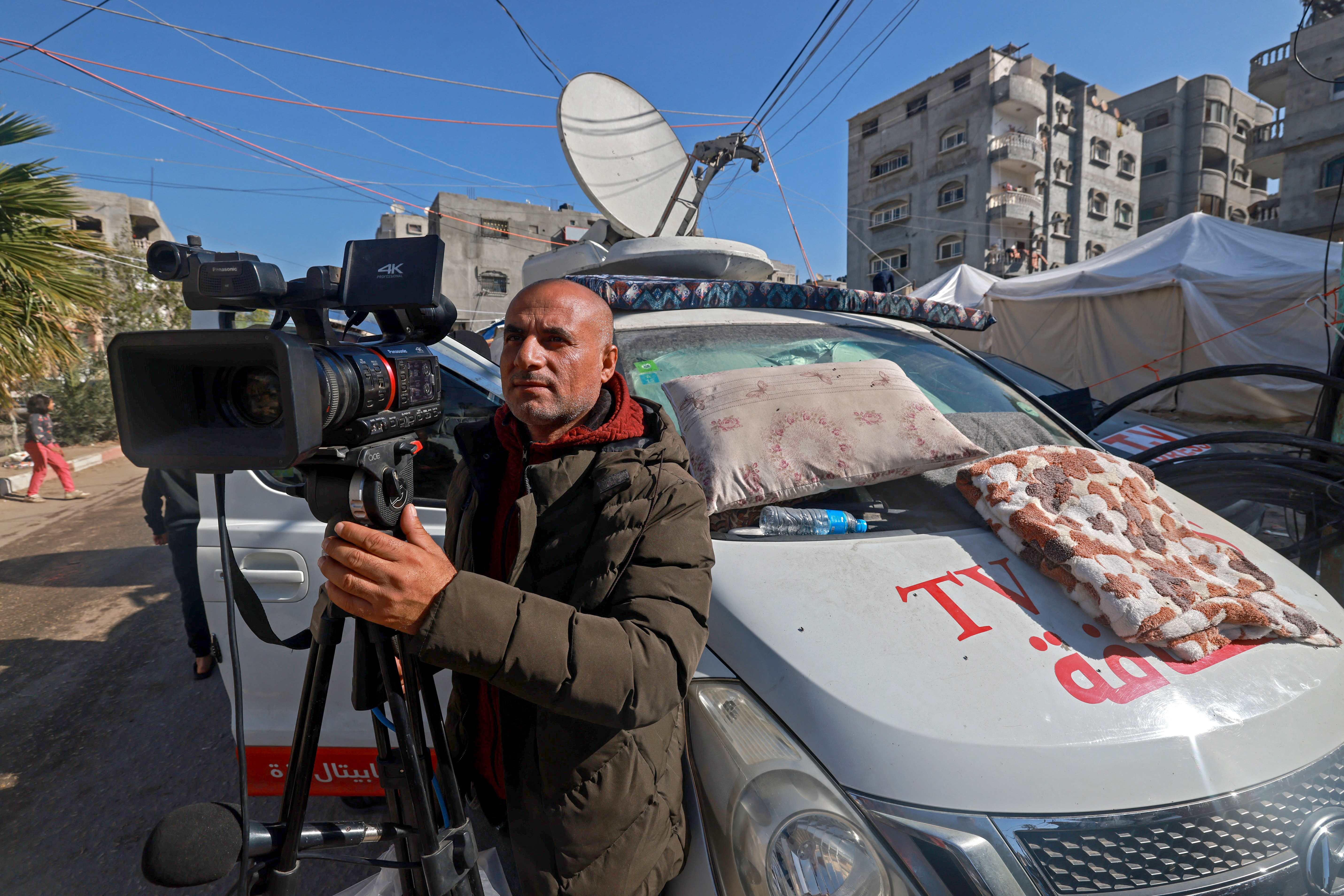بدأت متلازمة الخطر المرتبط بالعمل الصحفي ما قبل اندلاع الحرب العالمية الأولى، أي منذ (حرب القرم 1853 – 1856، الانتفاضة في الهند 1857، الحرب الأهلية الأمريكية 1861)، ولم تخلف أعدادا تذكر من الضحايا العاملين في مجال التغطية الإعلامية حينئذ.
ثم حلت على العالم الحربان العالميتان الأولى والثانية، ورغم الفظائع وعدد الضحايا والقتلى الذي تجاوز الملايين، فإن عدد من قتلوا من الإعلاميين أو جرت تصفيتهم لم يكن بالعدد الذي أُدرج في ذاكرة التاريخ أو خلدته إحصاءات ما بعد الحربين.
وتلا فترة ما بعد الحربين دخول العالم في مرحلة صراع القطبين، والحرب الباردة، ورغم الدور الكبير للإعلام خلال تلك الحقبة، ووقوع ضحايا وسط الإعلاميين، فإن الإنسانية لم تشهد جرائم بحق الصحفيين والإعلاميين مثل جرائم الكيان الإسرائيلي المحتل بحق الطواقم الصحفية والإعلامية بفلسطين، التي بلغت ذروتها في حرب غزة الأخيرة؛ إذ تجاوز عدد من استشهدوا من الطواقم الصحفية خلال عام واحد أكثر من مئة وسبعين صحفيا وصحفية استهدفوا جميعا عن سبق إصرار وترصد، ونقلت كاميرات زملائهم لحظات استشهادهم، وهم يؤدون أعمالهم بكل مهنية.
ولعل ميزة الجرائم المرتكبة بحق الطواقم الإعلامية في فلسطين أنها هذه المرة حدثت على مرأى ومسمع من العالم، وفي ظل منظومة أممية تدّعي أن من أوجب واجباتها حماية حق الإنسان في الحياة، والتصدي لأي دولة تنال من هذا الحق، بل غابت أو غُيبت العدالة الجنائية التي تمثلها المحكمة الجنائية الدولية، على الرغم من تقديم الضحايا شكاوى أمامها، لأفعال تمثل جرائم حرب، وجرائم بحق الإنسانية.
ولعل ميزة الجرائم المرتكبة بحق الطواقم الإعلامية في فلسطين أنها هذه المرة حدثت على مرأى ومسمع من العالم، وفي ظل منظومة أممية تدّعي أن من أوجب واجباتها حماية حق الإنسان في الحياة، والتصدي لأي دولة تنال من هذا الحق.
ومن المفارقات، أن الأمم المتحدة جعلت من الثاني من نوفمبر/ تشرين الثاني من كل عام يوما للتذكير بعدم إفلات قتلة الصحفيين ومرتكبي الجرائم بحقهم من العقاب، ولكنها وبكل أجهزتها وآلياتها وأذرعها ذات الصبغة الدولية، تقف عاجزة وهي تشاهد الجرائم المرتكبة بحق الصحافة والصحفيين والطواقم الإعلامية التي تغطي في الميدان. أما سبب العجز فيكمن في آليات هذه المنظومة التي لا يمكنها اتخاذ إجراءات حاسمة ضد الكيان الإسرائيلي بسبب استخدام "حق الفيتو"، الذي يتصدى لكل محاولة دولية لتجريم الكيان الإسرائيلي وأفعاله، فيعجز العالم عن إدانة تصرفاته.
تلك الحماية التي توفرها بعض الدول لإسرائيل أمام قرار دولي تجاهها، كان نتاجها مزيدا من الجرائم والمجازر بحق الإعلاميين، وهي جرائم تُرتَكب بكل وحشية؛ لأن مَن "أمن العقوبة أساء الأدب". تلك الحماية كذلك لجرائم الاحتلال، جعلت أكثر من 95% من المؤسسات الإعلامية العاملة في فلسطين عموما وقطاع غزة خصوصا، تسحب طواقمها الميدانية من أجل سلامتهم. وكان لانسحاب تلك المؤسسات الإعلامية انعكاسات على مستويين؛ الأول تراجع مستوى التغطية الإخبارية التي تخاطب الغرب وتفضح جرائم الاحتلال وانتهاكاته، والآخر تزايد وتيرة استهداف الصحفيين الفلسطينيين والمدنيين العزل.
ولم يتبق من الإعلاميين إلا الإعلاميون من أبناء فلسطين، الذين يسعون إلى نقل الخبر وفضح الانتهاكات المرتكبة من قبل جيش الاحتلال بإمكانات شحيحة للغاية، ولا سيما بعد تدمير الجيش الإسرائيلي لشبكات الاتصال تدميرا ممنهجا يرمي من ورائه إلى عزل مَن على الأرض عن العالم الخارجي.
ومن المفارقات، أن الأمم المتحدة جعلت من الثاني من نوفمبر/ تشرين الثاني من كل عام يوما للتذكير بعدم إفلات قتلة الصحفيين ومرتكبي الجرائم بحقهم من العقاب، ولكنها وبكل أجهزتها وآلياتها وأذرعها ذات الصبغة الدولية، تقف عاجزة وهي تشاهد الجرائم المرتكبة بحق الصحافة والصحفيين والطواقم الإعلامية التي تغطي في الميدان.
وحتى هذه الثلة التي آثرت البقاء رغم التحديات، فقد سعت سلطات الاحتلال الإسرائيلي إلى إلصاق التهم بهم، وتجريمهم، مدعية أنهم جزء من حركات المقاومة العسكرية، واستخدمت آلتها الإعلامية في التسويق لذلك، وشيطنة هؤلاء الإعلاميين، تمهيدا لاستهدافهم، بغية الوصول إلى هدفها الأساسي وهو تغييب الإعلام الميداني من المشهد في قطاع غزة خصوصا، حتى تكمل مشروعها باجتياح القطاع وتهجير سكانه، أو الاستمرار في أعمال الإبادة والتهجير القسري للسكان، ولن يتأتى لها ذلك في ظل وجود تغطيات ميدانية تفضح تلك الانتهاكات.
إن الوسائل التي استخدمتها قوات الاحتلال الإسرائيلي بحق الإعلام الفلسطيني، من قتل وتشريد وملاحقات للتصفية الجسدية، واستهداف عائلات الصحفيين، والتضييق عليهم، وضرب البنية التحتية لشبكة الاتصالات، وفي ظل غياب المحاسبة والمساءلة الدوليتين عن هذه الجرائم بموجب القانون الدولي، كل ذلك جعل بيئة العمل الإعلامي بفلسطين مشوبة بالمخاطر والتحديات التي تفوق قوة تحمل الشخص الطبيعي، وتنبئ بتراجع التغطيات الميدانية والعمل في تلك البيئة التي تتفوق فيها قوة الاحتلال الإسرائيلي بطائرات التجسس، والأقمار الاصطناعية، والمسيرات التي تحلق في ارتفاعات عالية لا يمكن رصدها، ما يجعل من استهداف الصحفيين والنيل منهم أمرا سهلا للغاية.
ولكن على الرغم من هذا التفوق التكنولوجي لصالح إسرائيل في المراقبة والاستهداف للإعلاميين، فإن قوة الإعلاميين الفلسطينيين وصمودهم وخبرتهم في التعامل مع الاحتلال الإسرائيلي، وإيمانهم بعدالة قضيتهم، كل ذلك يجعلنا مؤمنين بقدراتهم في التعامل مع هذا الواقع، كاشفين للعالم جرائم هذا الكيان الغاصب، وفي المقابل سنعمل مع الجميع على رصد تلك الانتهاكات وتوثيقها.










![Palestinian journalists attempt to connect to the internet using their phones in Rafah on the southern Gaza Strip. [Said Khatib/AFP]](/sites/default/files/ajr/2025/34962UB-highres-1705225575%20Large.jpeg)






























